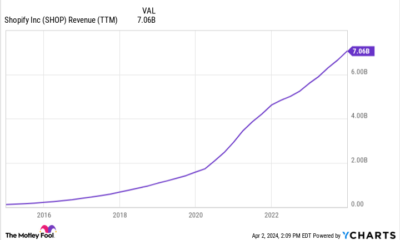After Meta’s stock jump, an executive warned employees that they’re still “at the whim of Apple”

Meta had an abysmal 2022. The value of its stock fell by 65 percent year over year, it laid off 11,000 people, and employee morale has suffered.
There are signs things are turning around, though: Earlier this month, the company reported stronger-than-expected Q4 earnings and saw its stock price jump by more than 20 percent in a single day. While almost every other major tech company is continuing to struggle and has also laid off thousands from their workforces, none has seen a stock market rebound anywhere close to Meta’s.
That progress could be overstated and the company isn’t out of the woods just yet, according to an internal memo from one of the company’s top executives that Recode obtained. Meta still faces major business challenges, including Apple limiting its advertising business, TikTok’s rising popularity, and its brand sentiment with users in the US.
Meta declined to comment.
In the note, which Meta Chief Marketing Officer Alex Schultz posted on Meta’s internal employee message board, Workplace, in early February, he cautioned employees to contain their excitement. “We have to keep our eyes on the horizon and not focus on the reaction of the street and our stock price,” he wrote. “I believe in this company … but we’re still early in this turnaround, not everything will pan out.”
Schultz wrote that Meta is still “at the whim of Apple,” referencing the new privacy feature that the iPhone maker introduced in 2021 that limited the amount of data Meta can collect about many mobile users, making it harder for the company to target ads — which is a key part of its business model. Last February, Meta said the change would cost the company $10 billion in lost revenue a year — around as much as the company is spending annually on its metaverse ambitions. Since Apple made the change, Facebook had been using AI to recoup those losses and better target ads without Apple’s help. One approach, according to the Wall Street Journal, has been “bargaining with users” to get them to agree to tracking in exchange for seeing fewer ads. These efforts are still early, though, and Schultz’s memo reflects the continued power that Apple, as the gatekeeper of the iPhone App Store, still holds over Facebook and Instagram.
The executive also tempered expectations around Reels, Meta’s TikTok clone, saying that its “monetization efficiency” — or how much money the company is making from ads on Reels — has grown “but is still very low.” Overall, Reels is “still smaller than TikTok,” Schultz wrote. Meta CEO Mark Zuckerberg said in November that the amount of time users spend on Reels is about half of the time spent on TikTok, in countries outside of China.
Zuckerberg also said in a post-earnings call post this month that there are more than 140 billion Reels plays across Facebook and Instagram each day, a more than 50 percent increase from six months ago. But advertising within Reels still doesn’t make nearly as much money as advertising within Facebook and Instagram feeds.
In terms of the overall popularity of Meta’s apps, Schultz was similarly blunt.
“We are seeing better numbers on young adults and teens in the US but we’re not satisfied, sentiment trends are better for our brands but that doesn’t mean they are good in the US and similar countries and I could go on and on,” Schultz wrote.
The memo is in line with Zuckerberg’s drumbeat of messaging in recent months: Employees need to work harder to make sure Meta is “winning” again. The company is reportedly planning another round of layoffs. In particular, Zuckerberg wants to cut layers of middle management as part of his drive for increased efficiency.
For Meta, a company that had two decades of nearly unstoppable growth that suddenly halted in the past year, the note is also a demonstration of how tenuous the company’s trajectory remains. It’s too early to call Meta’s recent stock market gains a comeback.
As Meta and the rest of the tech industry face unprecedented economic uncertainty, Meta’s leaders aren’t planning to let the company rest on its laurels. Schultz’s note makes it clear: There’s still a lot more work to do before Meta can return to its glory days.
Read the full memo below:
Hey, team, just like when I talked in our Q&A after our stock price dropped precipitously last year there’s been another big street reaction to our earnings call (and the run up to it), this time up. It’s nice to see people thinking we’ve improved our discipline and we’re not as bad they thought. I’ve been in a few groups though where I’ve seen folks get quite excited. So I want to remind you what I said last year. We’re never as bad as they think we are at times like last year’s stock crash but we’re probably never as good as they think at times like this. We’re still early in this turnaround. We still have efficiency we need to find to run this company better in the new reality, we’re still at the whim of Apple, relative Monetization Efficiency has grown on reels but it is still very low, reels have grown a lot but they are still smaller than TikTok, we are seeing better numbers on young adults and teens in the US but we’re not satisfied, sentiment trends are better for our brands but that doesn’t mean they are good in the US and similar countries and I could go on and on. We have to keep our eyes on the horizon and not focus on the reaction of the street and our stock price. I believe in this company, I am really bullish in the long term future, all the things I felt positive about last year, I feel positive about, BUT we’re still early in this turnaround, not everything will pan out, we will have a lot of highs and lows yet and we have to keep a long term focus and level head no matter what the outside noise is, positive or negative.
Stay Focused and Keep Shipping
Facebook Faces Yet Another Outage: Platform Encounters Technical Issues Again

Uppdated: It seems that today’s issues with Facebook haven’t affected as many users as the last time. A smaller group of people appears to be impacted this time around, which is a relief compared to the larger incident before. Nevertheless, it’s still frustrating for those affected, and hopefully, the issues will be resolved soon by the Facebook team.
Facebook had another problem today (March 20, 2024). According to Downdetector, a website that shows when other websites are not working, many people had trouble using Facebook.
This isn’t the first time Facebook has had issues. Just a little while ago, there was another problem that stopped people from using the site. Today, when people tried to use Facebook, it didn’t work like it should. People couldn’t see their friends’ posts, and sometimes the website wouldn’t even load.
Downdetector, which watches out for problems on websites, showed that lots of people were having trouble with Facebook. People from all over the world said they couldn’t use the site, and they were not happy about it.
When websites like Facebook have problems, it affects a lot of people. It’s not just about not being able to see posts or chat with friends. It can also impact businesses that use Facebook to reach customers.
Since Facebook owns Messenger and Instagram, the problems with Facebook also meant that people had trouble using these apps. It made the situation even more frustrating for many users, who rely on these apps to stay connected with others.
During this recent problem, one thing is obvious: the internet is always changing, and even big websites like Facebook can have problems. While people wait for Facebook to fix the issue, it shows us how easily things online can go wrong. It’s a good reminder that we should have backup plans for staying connected online, just in case something like this happens again.
Christian family goes in hiding after being cleared of blasphemy

LAHORE, Pakistan — A court in Pakistan granted bail to a Christian falsely charged with blasphemy, but he and his family have separated and gone into hiding amid threats to their lives, sources said.
Haroon Shahzad, 45, was released from Sargodha District Jail on Nov. 15, said his attorney, Aneeqa Maria. Shahzad was charged with blasphemy on June 30 after posting Bible verses on Facebook that infuriated Muslims, causing dozens of Christian families in Chak 49 Shumaali, near Sargodha in Punjab Province, to flee their homes.
Lahore High Court Judge Ali Baqir Najfi granted bail on Nov. 6, but the decision and his release on Nov. 15 were not made public until now due to security fears for his life, Maria said.
Shahzad told Morning Star News by telephone from an undisclosed location that the false accusation has changed his family’s lives forever.
“My family has been on the run from the time I was implicated in this false charge and arrested by the police under mob pressure,” Shahzad told Morning Star News. “My eldest daughter had just started her second year in college, but it’s been more than four months now that she hasn’t been able to return to her institution. My other children are also unable to resume their education as my family is compelled to change their location after 15-20 days as a security precaution.”
Though he was not tortured during incarceration, he said, the pain of being away from his family and thinking about their well-being and safety gave him countless sleepless nights.
“All of this is due to the fact that the complainant, Imran Ladhar, has widely shared my photo on social media and declared me liable for death for alleged blasphemy,” he said in a choked voice. “As soon as Ladhar heard about my bail, he and his accomplices started gathering people in the village and incited them against me and my family. He’s trying his best to ensure that we are never able to go back to the village.”
Shahzad has met with his family only once since his release on bail, and they are unable to return to their village in the foreseeable future, he said.
“We are not together,” he told Morning Star News. “They are living at a relative’s house while I’m taking refuge elsewhere. I don’t know when this agonizing situation will come to an end.”
The Christian said the complainant, said to be a member of Islamist extremist party Tehreek-e-Labbaik Pakistan and also allegedly connected with banned terrorist group Lashkar-e-Jhangvi, filed the charge because of a grudge. Shahzad said he and his family had obtained valuable government land and allotted it for construction of a church building, and Ladhar and others had filed multiple cases against the allotment and lost all of them after a four-year legal battle.
“Another probable reason for Ladhar’s jealousy could be that we were financially better off than most Christian families of the village,” he said. “I was running a successful paint business in Sargodha city, but that too has shut down due to this case.”
Regarding the social media post, Shahzad said he had no intention of hurting Muslim sentiments by sharing the biblical verse on his Facebook page.
“I posted the verse a week before Eid Al Adha [Feast of the Sacrifice] but I had no idea that it would be used to target me and my family,” he said. “In fact, when I came to know that Ladhar was provoking the villagers against me, I deleted the post and decided to meet the village elders to explain my position.”
The village elders were already influenced by Ladhar and refused to listen to him, Shahzad said.
“I was left with no option but to flee the village when I heard that Ladhar was amassing a mob to attack me,” he said.
Shahzad pleaded with government authorities for justice, saying he should not be punished for sharing a verse from the Bible that in no way constituted blasphemy.
Similar to other cases
Shahzad’s attorney, Maria, told Morning Star News that events in Shahzad’s case were similar to other blasphemy cases filed against Christians.
“Defective investigation, mala fide on the part of the police and complainant, violent protests against the accused persons and threats to them and their families, forcing their displacement from their ancestral areas, have become hallmarks of all blasphemy allegations in Pakistan,” said Maria, head of The Voice Society, a Christian paralegal organization.
She said that the case filed against Shahzad was gross violation of Section 196 of the Criminal Procedure Code (CrPC), which states that police cannot register a case under the Section 295-A blasphemy statute against a private citizen without the approval of the provincial government or federal agencies.
Maria added that Shahzad and his family have continued to suffer even though there was no evidence of blasphemy.
“The social stigma attached with a blasphemy accusation will likely have a long-lasting impact on their lives, whereas his accuser, Imran Ladhar, would not have to face any consequence of his false accusation,” she said.
The judge who granted bail noted that Shahzad was charged with blasphemy under Section 295-A, which is a non-cognizable offense, and Section 298, which is bailable. The judge also noted that police had not submitted the forensic report of Shahzad’s cell phone and said evidence was required to prove that the social media was blasphemous, according to Maria.
Bail was set at 100,000 Pakistani rupees (US $350) and two personal sureties, and the judge ordered police to further investigate, she said.
Shahzad, a paint contractor, on June 29 posted on his Facebook page 1 Cor. 10:18-21 regarding food sacrificed to idols, as Muslims were beginning the four-day festival of Eid al-Adha, which involves slaughtering an animal and sharing the meat.
A Muslim villager took a screenshot of the post, sent it to local social media groups and accused Shahzad of likening Muslims to pagans and disrespecting the Abrahamic tradition of animal sacrifice.
Though Shahzad made no comment in the post, inflammatory or otherwise, the situation became tense after Friday prayers when announcements were made from mosque loudspeakers telling people to gather for a protest, family sources previously told Morning Star News.
Fearing violence as mobs grew in the village, most Christian families fled their homes, leaving everything behind.
In a bid to restore order, the police registered a case against Shahzad under Sections 295-A and 298. Section 295-A relates to “deliberate and malicious acts intended to outrage religious feelings of any class by insulting its religion or religious beliefs” and is punishable with imprisonment of up to 10 years and fine, or both. Section 298 prescribes up to one year in prison and a fine, or both, for hurting religious sentiments.
Pakistan ranked seventh on Open Doors’ 2023 World Watch List of the most difficult places to be a Christian, up from eighth the previous year.
Morning Star News is the only independent news service focusing exclusively on the persecution of Christians. The nonprofit’s mission is to provide complete, reliable, even-handed news in order to empower those in the free world to help persecuted Christians, and to encourage persecuted Christians by informing them that they are not alone in their suffering.
Free Religious Freedom Updates
Join thousands of others to get the FREEDOM POST newsletter for free, sent twice a week from The Christian Post.
Individual + Team Stats: Hornets vs. Timberwolves
CHARLOTTE HORNETS MINNESOTA TIMBERWOLVES You can follow us for future coverage by liking us on Facebook & following us on X: Facebook – All Hornets X – …
Source link
-

 WORDPRESS7 days ago
WORDPRESS7 days agoTurkish startup ikas attracts $20M for its e-commerce platform designed for small businesses
-

 MARKETING6 days ago
MARKETING6 days agoRoundel Media Studio: What to Expect From Target’s New Self-Service Platform
-

 SEO5 days ago
SEO5 days agoGoogle Limits News Links In California Over Proposed ‘Link Tax’ Law
-
SEARCHENGINES6 days ago
Daily Search Forum Recap: April 12, 2024
-

 SEARCHENGINES7 days ago
SEARCHENGINES7 days agoGoogle Search Results Can Be Harmful & Dangerous In Some Cases
-

 MARKETING7 days ago
MARKETING7 days agoUnlocking the Power of AI Transcription for Enhanced Content Marketing Strategies
-

 SEO5 days ago
SEO5 days ago10 Paid Search & PPC Planning Best Practices
-

 SEARCHENGINES5 days ago
SEARCHENGINES5 days agoGoogle Core Update Volatility, Helpful Content Update Gone, Dangerous Google Search Results & Google Ads Confusion















You must be logged in to post a comment Login